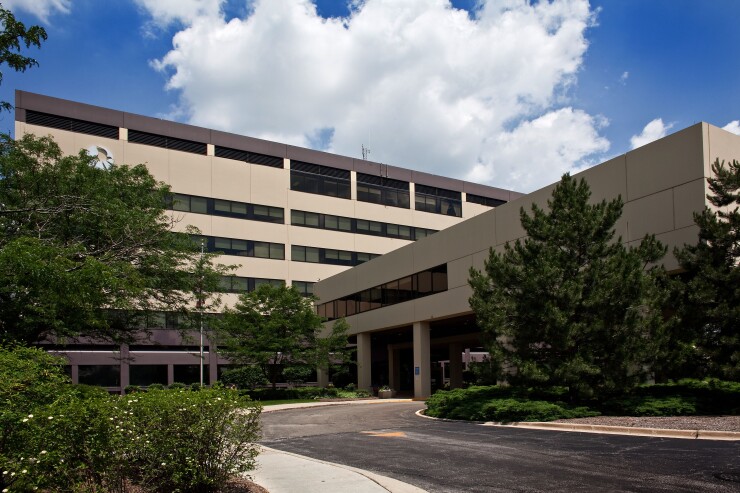CHICAGO – St. Louis-based national healthcare system Ascension Health has completed its acquisition of Chicago-based Presence Health.
Presence is now owned by Ascension but is a member of AMITA Health, a joint venture of the Ascension-owned Alexian Brothers Health System and Adventist Midwest Health System which is part of Adventist Health System.
Ascension is the largest not-for-profit health care system nationally. It announced the completed acquisition Friday.
“By combining our strengths and learning from one another, we will strengthen Catholic healthcare and our ability to provide compassionate, personalized care in Illinois and in every community across the country where we are privileged to serve,” said Ascension chief executive officer Anthony Tersigni.

State and federal regulators have signed off. Amita operates nine hospitals, more than 80 clinics and outpatient facilities in the Chicago region and Presence has 12.
Ascension and Presence signed a letter of intent in August. Presence has struggled to right its balance sheet over the last two years but has trimmed operating losses as a turnaround plan began to yield results.
Fitch Ratings last year revised its outlook to stable from negative on the Presence system’s BBB rating, affecting its $1 billion of new money and restructuring bonds issued in 2016. The deal – which was recognized in the healthcare category by The Bond Buyer at its 2016 Deal of the Year awards -- restructured existing debt and gave the system some breathing room for its turnaround plan to take hold.
S&P Global Ratings in late June revised the outlook to stable from negative on Presence's its BBB-minus rating.
Presence’s challenges include competition posed by a competitive market in greater Chicago and pressures posed by the state’s long delays in Medicaid payments.
Presence also operates 27 long-term care and senior residential facilities, more than 50 primary and specialty clinics, and two home care/hospice agencies in the Chicago and East Central Illinois market. It reported total revenues of $2.7 billion in fiscal 2016. Two of its hospitals are not part of the merger.
New management took over the system in late 2015 and it launched a fiscal review resulting in accounting adjustments that hurt 2015 operating results.
Ascension has grown into the largest not-for-profit healthcare system through steady acquisitions over more than a decade. The system’s $5 billion of debt carries double-A level ratings. It operates 141 hospitals and provides senior care and home health services in 22 states and the District of Columbia with operating revenue of nearly $22 billion.
The system's challenges include moderate operating margins, concentration in states that have not yet expanded Medicaid eligibility under the Affordable Care Act, and competition in most markets, Moody’s Investors Service wrote in its last report on the system.
In a disclosure posting in late February, Presence reported the signing of a definitive agreement with Ascension that signaled the near completion of the deal. The corporate name of Alexian is being changed to Presence Alexian Brothers Health System.
“The series 2016C bonds continue to be secured under the Master Trust Indenture dated as of August 1, 2016 among the Members of the Obligated Group established thereunder, and The Bank of New York Mellon Trust Company, N.A., as master trustee,” the Presence notice said.
Loyola Medicine -- which is part the large, national not-for-profit Michigan-based Trinity Health – last Thursday announced it had completed its acquisition of MacNeal Hospital in the Chicago suburb of Berwyn.
The 374-bed hospital joins the Loyola system that includes its Loyola University Medical Center in Maywood and Gottlieb Memorial Hospital in Melrose Park. MacNeal was owned by for-profit Tenet Healthcare which had struggled to compete in the Chicago area market. The sale price was not disclosed.
The Trinity system includes 94 hospitals in 22 states. Its last debt sale late last year funded the MacNeal purchase.
The unions are the latest in a wave in healthcare consolidation as the sector deals with challenges posed federal healthcare reform, efforts to repeal the Affordable Care Act, reimbursement pressures, and other operational pressures with the view being that larger scale systems can better manage costs.





